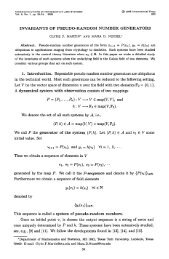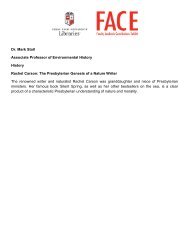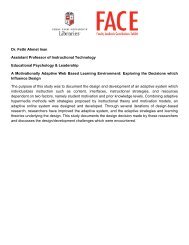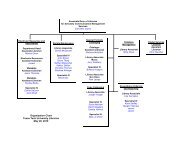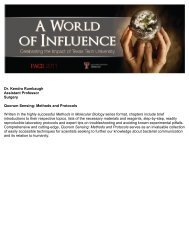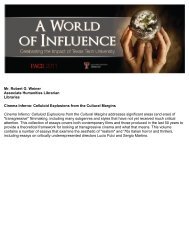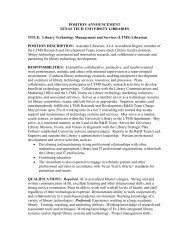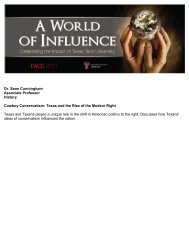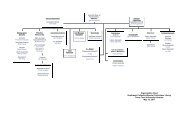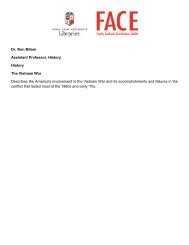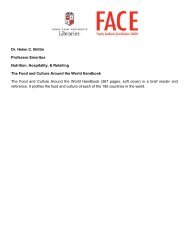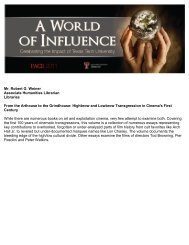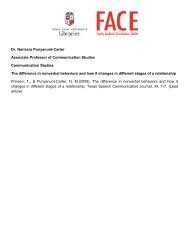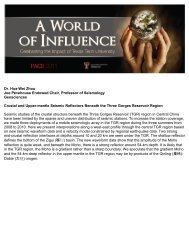Nonprofit Organizations Law and Policy Third Edition - Libraries ...
Nonprofit Organizations Law and Policy Third Edition - Libraries ...
Nonprofit Organizations Law and Policy Third Edition - Libraries ...
Create successful ePaper yourself
Turn your PDF publications into a flip-book with our unique Google optimized e-Paper software.
SEC. I NATURE OF A NONPROFIT ORGANIZATION 25<br />
NATIONALIST FOUNDATION v. COMMISSIONER<br />
COHEN, J.<br />
United States Tax Court, 2000<br />
80 T.C.M. 507, T.C. Memo 2000-318<br />
Respondent determined that The Nationalist Foundation (petitioner)<br />
does not qualify as a section 501(c)(3) charitable organization <strong>and</strong>, therefore,<br />
is not exempt from Federal taxation under section 501(a). Pursuant<br />
to section 7428 <strong>and</strong> title XXI of the Tax Court Rules of Practice <strong>and</strong><br />
Procedure, petitioner seeks a declaratory judgment that it is a qualified<br />
organization under section 501(c)(3). The issues for decision are whether<br />
petitioner operates exclusively for charitable <strong>and</strong>/or educational purposes<br />
<strong>and</strong> whether the Commissioner treated petitioner differently from other<br />
similarly situated organizations in violation of petitioner's due process <strong>and</strong><br />
equal protection rights under the 5th <strong>and</strong> 14th Amendments to the<br />
Constitution. * * *<br />
* * *<br />
On Form 1023, Application for Recognition of Exemption Under<br />
Section 501(c)(3) of the Internal Revenue Code, petitioner stated that its<br />
principal activities are: Conducting forums to discuss Constitutional<br />
rights' issues, stressing the First Amendment; conducting public access<br />
cable television <strong>and</strong> internet programs featuring guests, interviews <strong>and</strong><br />
documentaries on current issues stressing the use of lawful, peaceful <strong>and</strong><br />
positive means to achieve democratic ends, conducting litigation (or amicus<br />
curiae) to lessen the burdens of government under the "private<br />
attorney general" method to secure <strong>and</strong> advance civil, constitutional <strong>and</strong><br />
First Amendment rights. According to petitioner, "private attorney general"<br />
means that "citizens assist in enforcement of the laws, saving the<br />
government time <strong>and</strong> expense of doing so, such as by private litigation."<br />
Petitioner's constitution states that it shall be a nonprofit charitable <strong>and</strong><br />
educational organization dedicated to advancing American freedom, American<br />
democracy, <strong>and</strong> American nationality.<br />
Petitioner seeks to become the legal <strong>and</strong> educational arm of rightist<br />
<strong>and</strong> promajority Americans. Petitioner states, in a letter soliciting donations<br />
from the public, that it will use the courts to bring "terrorists" who<br />
attack promajority demonstrators to justice. The letter cites two examples<br />
of events where petitioner would bring litigation using the "private<br />
attorney general" technique:<br />
In Simi Valley, self-described communists advertised in the newspaper<br />
that they would kill patriots assembled to thank the jury that acquitted<br />
Officers Koon <strong>and</strong> Powell (Police officers accused of beating Rodney King).<br />
In New Hampshire, avowed homosexuals advertised that they would<br />
attack patriots calling for abolishing the * * * [Martin Luther King, Jr.]<br />
Holiday. It took massive intervention by riot police to back them off.



